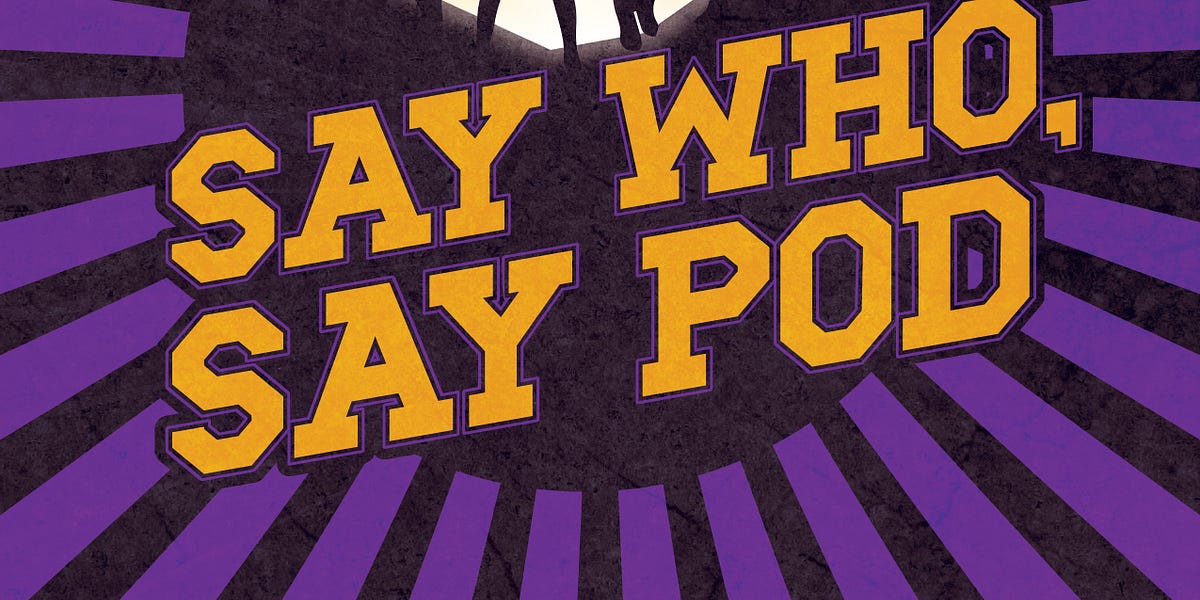- The Dang Apostrophe
- Posts
- The issue was time not money
The issue was time not money
Geno Smith's new extension in Las Vegas makes it clear that the sticking point with the Seahawks wasn't the cash, but the level of commitment.
Geno Smith agreed to a two-year contract extension with the Las Vegas Raiders, which provides a perfect opportunity to pause and take stock of the rationale Seattle used when it came to picking a quarterback last month.
But first, I will make fun of the Mariners, who do not seem to have started a new season so much as carried over much of what we saw last year:
Really good pitching (with the exception of Emerson Hancock’s start)
Sustained difficulty scoring (Seattle’s 18 runs are tied for fifth-fewest in all of baseball)
Lots and lots of strikeouts
This does offer a chance to break out some of Jerry Dipoto’s from this preseason, though:

Well Jerry, my perception so far is that adding Donovan Solano wasn’t enough to tip the scales of this team’s lineup and it appears that the production of both Luke Raley and Victor Robles has receded from the high-water marks of last season.
The Mariners are 3-4 with three games in San Francisco before they return to T Mobile Park for six games within the division.


All right, now let’s get to Smith.
He was entering the final year of his existing contract in Seattle, which was scheduled to pay him $31 million for the 2025 season. The extension he agreed to in Las Vegas adds two years and $75 million to his existing deal.
Add it up, and Smith’s new deal is scheduled to pay out $106 million over the next three years. Sam Darnold’s deal with the Seahawks is for three years, $100.5 million. This similarity did not escape the notice of the Internet on Thursday.
For those Seahawks fan who believed in Smith as a long-term starter, the new extension was proof that GM John Schneider made a mistake. Smith did not command substantially more than Darnold. In fact, if you add in the cap math, it’s possible Seattle will wind up paying more for Darnold in 2025 than they would have by keeping Smith.
And if Schneider gets fired and Darnold stays healthy and the new GM does move on after one year, they will have spent $51M on the QB position for 2025.
($37.5M for Darnold and $13.5M in Smith's dead money, while keeping Geno would have been $44.5M)
— John P Gilbert (@JohnPGilbertNFL)
8:13 PM • Apr 3, 2025
Mike Florio of ProFootballTalk implied that Smith didn’t get what he was seeking in terms of compensation given that he received an average of $37.5 million in “new money.”
There’s merit to both perspectives. Smith has a stronger track record than Darnold, and he’s not going to make that much more money. Darnold is younger, however.
Here’s a couple of things to keep in mind, though:
We don’t know what Smith wanted from Seattle.
Bob Condotta of The Seattle Times stated that the average annual salary under the Seahawks’ offer was between $40 million and $45 million. The fact that the extension Smith eventually accepted was for a lower annual salary leads me to conclude that either Smith’s asking price dropped (significantly) or it wasn’t the average salary that was the sticking point, but rather the amount of the contract that was guaranteed.
Additionally, the Raiders had a much better negotiating position than Seattle. Part of that is the presence of Pete Carroll as a head coach. Carroll and Smith are close. But the bigger issue would be history. Smith sought an extension last year and was rebuffed. It – after failing to agree on an extension this year – the Seahawks had asked Smith to play out the final year of his contract, it would have been volatile and probably untenable.
That was a much more realistic option for Las Vegas, however. NFL rules make it financially punishing for any player under contract to hold out. After the trade, Smith’s bargaining position changed.
The extent of the commitment.
Darnold’s contract includes $37.5 million of so-called “guaranteed” money. This refers to money he is virtually assured of receiving as soon as the contract is signed. Now, reports have pegged the guaranteed money of Smith’s new deal at $66.5 million. I assume this is the $31 million from the final year of his existing contract and $35.5 million of the $75 million in the extension.
It seems fairly clear to me that it was the volume of guarantees as opposed to the salary that was the sticking point between Seattle and Smith.
Having been Seattle’s starter for three seasons, it’s very understandable why Smith would want a multi-year financial commitment as the starter. He’s played rather well while facing an incredible amount of pass pressure.
I can also see — from Seattle’s perspective — why it was hesitant to bet not just the 2025 season, but 2026 on the conviction that the offense would get better with Smith at quarterback. While I think that Smith has played pretty well, the team’s performance has been overall quite average or “mid” as the kids now say.
But more than anything, understanding Seattle’s decision at quarterback requires you to look beyond an apples-to-apples comparison between Darnold and Smith.
This is about much more than which quarterback gives you the best chance of winning in 2025. The Seahawks also had to assess where it would be one year from now if it decided the quarterback you have isn’t good enough.
It will be significantly less costly for the Seahawks to move on from Darnold than it would have been with Smith, and ultimately, the Seahawks were not willing to bet the 2026 season on Smith.
Will the Seahawks regret trading Geno Smith? |

Reply